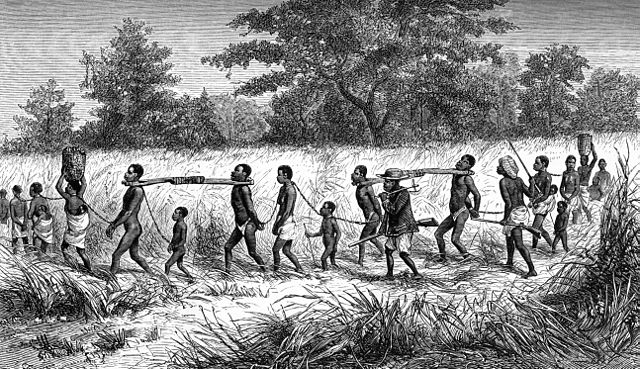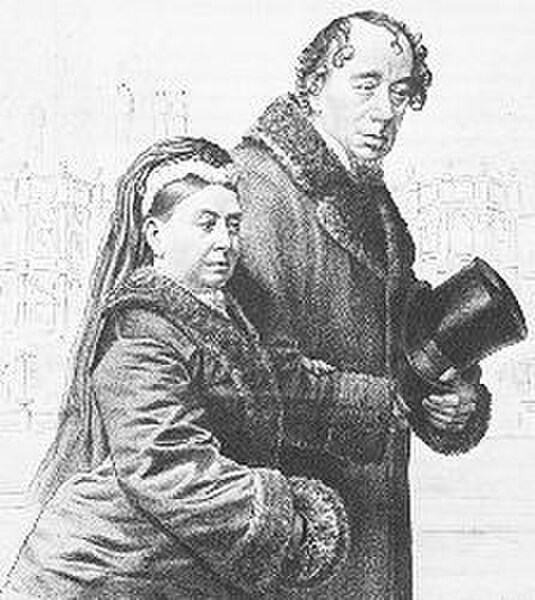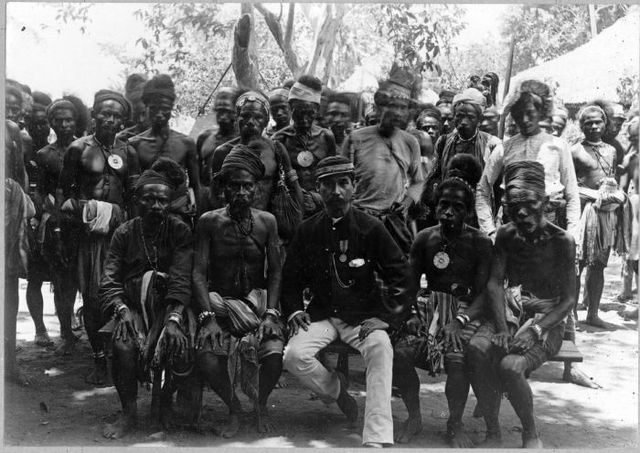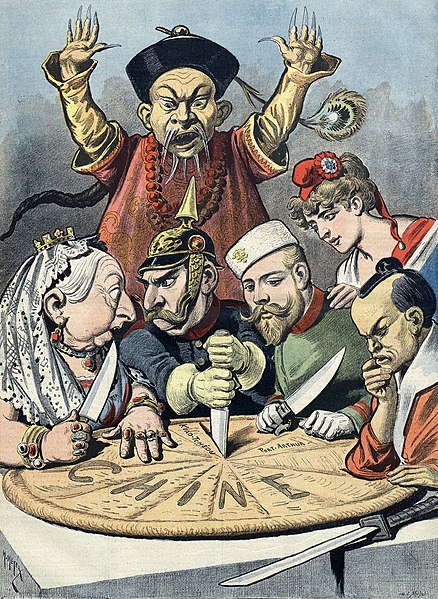The Berlin Conference of 1884–1885, met on 15 November 1884, and after an adjournment concluded on 26 February 1885, with the signature of a General Act, regulating the European colonization and trade in Africa during the New Imperialism period.
The conference of Berlin, as illustrated in German newspaper Die Gartenlaube
The conference of Berlin, as illustrated in Illustrirte Zeitung
Cartoon depicting Leopold II and other imperial powers at the Berlin Conference
Slave traders and their captives bound in chains and collared with 'taming sticks'. From Livingstone's Narrative
In historical contexts, New Imperialism characterizes a period of colonial expansion by European powers, the United States, and Japan during the late 19th and early 20th centuries. The period featured an unprecedented pursuit of overseas territorial acquisitions. At the time, states focused on building their empires with new technological advances and developments, expanding their territory through conquest, and exploiting the resources of the subjugated countries. During the era of New Imperialism, the European powers individually conquered almost all of Africa and parts of Asia. The new wave of imperialism reflected ongoing rivalries among the great powers, the economic desire for new resources and markets, and a "civilizing mission" ethos. Many of the colonies established during this era gained independence during the era of decolonization that followed World War II.
British Prime Minister Benjamin Disraeli and Queen Victoria
Indigenous African soldier pledging alliance to the Spanish flag. European armies would regularly enlist natives to garrison their own land.
Colonial government official J. Rozet, an Indo Eurasian, in negotiation with tribal chiefs (Roti Islanders), Pariti, Timor, 1896.
A shocked mandarin in official robes in the back, with Queen Victoria (Britain),Wilhelm II (Germany), Nicholas II (Russia), Marianne (France), and a samurai (Japan) discussing how to cut up Chine ("China" in French).








